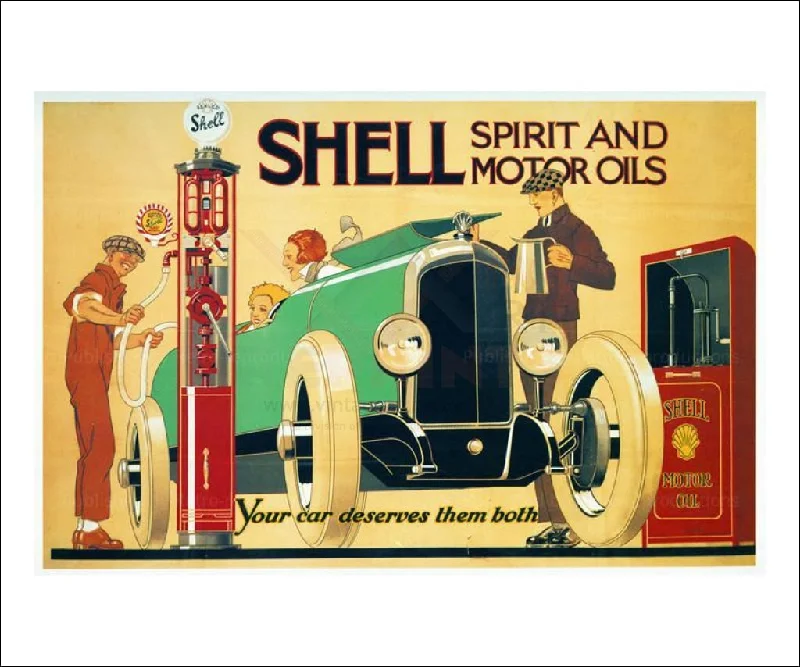In 1833, shopkeeper Marcus Samuel decided to expand his London business. He sold antiques, but now added oriental shells. He aimed to capitalize on a fashion for using them in interior design. Such was the demand that Samuel quickly began importing shells from the Far East, laying the foundations for an import-export business that would eventually become one of the world's leading energy companies.
The market for oil remained confined to lighting and lubricants until, in 1886, the internal combustion engine and demand for gasoline arrived with Karl Benz and the first Mercedes. By now the Samuel business had passed to Marcus Samuel junior and his brother Sam. They exported British machinery, textiles and tools to newly industrializing Japan and the Far East and on return imported rice, silk, china and copper ware to the Middle East and Europe. In London, they traded in commodities such as sugar, flour and wheat worldwide.
It was during a trip to Japan that Marcus became interested in the oil exporting business based in Baku, Azerbaijan, which was part of Russia at that time. The Rothschilds had invested heavily in the 1880s in rail and tunnels to overcome the transport difficulties of getting oil from this landlocked base to the Black Sea and from there to overseas markets. Shipping still posed a problem as the oil was carried in barrels, which could leak and took up much space in the ship’s hold. Marcus and Sam commissioned a fleet of steamers to carry oil in bulk, using for the first time the Suez Canal. They also set up bulk oil storage at ports in the Far East and contracted with Bnito, a Russian group of producers controlled by the Rothschilds, for the long-term supply of kerosene.
Their strategy was high-risk: if news of their operations got out they would be squeezed out by Rockefeller’s dominant Standard Oil. With the maiden voyage of the first bulk tanker, the “Murex”, through the Suez Canal in 1892 the Samuels had achieved a revolution in oil transportation. Bulk transport substantially cut the cost of oil by enormously increasing the volume that could be carried. The Samuel brothers initially called their company The Tank Syndicate but in 1897 renamed it the Shell Transport and Trading Company.

